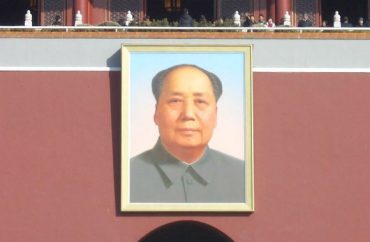
New York University student Ella Reider had to go to China to find the freedom to debate things she’d never be allowed to say or hear in Manhattan.
That’s her surprising takeaway from the past year studying at NYU Shanghai, whose openness to controversial ideas stands in stark contrast to the American campus, which is increasingly “hostile to political views that differ from the predominant views on campus.”
The summer intern for the Foundation for Individual Rights in Education writes about the special provisions given to the Shanghai campus, where everyone has “full access to the internet and are not subject to the same censorship as those on other Chinese university campuses.”
MORE: New campus culture: The limiting of the human mind
But what sets it apart from America is the freewheeling classroom discussions and the administration’s refusal to protect students from offense, she says:
Professors and students alike debated hot-button topics and openly appreciated the ability to say things that were typically taboo off campus. In fact, in my time there I heard several of NYU Shanghai’s Chinese professors praise the university for allowing them to discuss a myriad of controversial subjects in class without fear of retribution.
Reider speculates that “American students felt safer discussing contentious issues and voicing typically unpopular opinions” at NYU Shanghai because they were so far from home, but she’s stumped by the stunning hands-off approach by administrators to a campus art exhibit:
The exhibit included sheets of paper in the shape of female genitalia plastered to the ceiling windows. Numerous derogatory words for women (“bitch,” “slut,” etc.) were written on the sheets in an effort to criticize what the artists saw as sexism on the part of society at large. The student body was largely unaware of the art show, and little attention was paid to the exhibit—until one student posted a picture of the art show and vocalized criticism on Facebook. A full-fledged debate quickly broke out, with some students questioning the appropriateness of such an exhibit in an academic setting. However, the matter remained nothing more than a subject of discussion amongst the students. No administrator or faculty member stepped in to remedy student concerns over the artwork.
MORE: Profs launch ‘Heterodox Academy’ to counter uniformity of ideas
In contrast, here’s what happened to NYU Prof. Jonathan Haidt – co-author of the infamous “Coddling of the American Mind” article – when a student got offended:
After he showed a video meant to portray how people reach moral conclusions without any rational basis, one of Haidt’s students complained to the dean of the Stern School of Business. She accused Haidt of homophobia due to the video’s content and use of the word “disgusting” when discussing sexual preferences that the actor did not share. According to Haidt, this led the administration to bring him before the Office of Equal Opportunity, though they later dropped the investigation upon finding no evidence of wrongdoing.
https://www.youtube.com/watch?v=VshD1NcfUs4
From how Reider describes it, you wonder if NYU was so traumatized by the Chen Guangcheng controversy after opening its Shanghai campus that the two effectively switched authoritarian impulses, like Lindsay Lohan and Jamie Lee Curtis switching bodies in Freaky Friday.
MORE: Prof who assigned ‘Coddling of the American Mind’ speaks on censorship
Like The College Fix on Facebook / Follow us on Twitter
IMAGE: Poco a poco/Wikimedia Commons







Please join the conversation about our stories on Facebook, Twitter, Instagram, Reddit, MeWe, Rumble, Gab, Minds and Gettr.